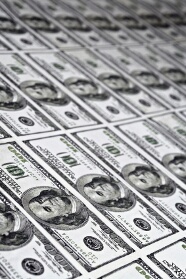The US dollar weakened against most currencies including the euro and the currencies of New Zealand and Canada this week. Yet the greenback managed to gain on some currencies, most notably the Great Britain pound and the Japanese yen.
There were plenty of macroeconomic reports this week, some good, some bad, and overall they did not describe a clear picture of the US economy. Confusing fundamentals led to mixed performance of the US dollar. But by the end of the week the market sentiment turned to positivity. The words of the Federal Reserve about pause in economic activity growth were considered as a hint about additional stimulus and the employment data was well received by markets (even though it was confusing too).
The pound was even weaker than the dollar as domestic fundamentals were detrimental for the UK currency, spurring fears of triple-dip recession. And of course the yen remained the biggest loser of the Forex market as the Japanese government still looks determined to weaken the currency.
EUR/USD advanced from 1.3465 to 1.3654 this week — the highest weekly close since November 2011. GBP/USD dropped from 1.5758 to 1.5699 (the lowest since August) after rallying to 1.5877. USD/JPY climbed from 91.02 to 92.68, while the weekly low was at 90.32. USD/CAD slipped from 1.0063 to 0.9972.
If you have any questions, comments or opinions regarding the US Dollar,
feel free to post them using the commentary form below.



Be First to Comment